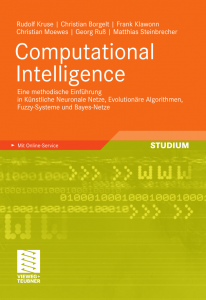Ich bin ja mittlerweile leider schon einiges von Uni-Verwaltung und Behörden gewohnt. Allerdings ist es tatsächlich sehr kompliziert, beispielsweise eine Aufenthaltsgenehmigung zu bekommen, wenn man Nicht-EU-Ausländer ist. Hier der Fall: eine hochqualifizierte Gastwissenschaftlerin hat es auf Einladung unserer Arbeitsgruppe hin für elf Monate an unsere Universität verschlagen. Damit beginnt eine Odyssee, die nicht notwendig sein müßte.
Lektion 1: Bürokratischer Zirkelschluß Nun benötigt sie hier in Deutschland natürlich ein Bankkonto, um beispielsweise ihre Miete bezahlen zu können. Um das Bankkonto zu bekommen, möchten alle Banken eine Aufenthaltsgenehmigung. Um diese Aufenthaltsgenehmigung zu bekommen, braucht sie eine Krankenversicherung. Um die Krankenversicherung zu bekommen, braucht sie ein Bankkonto, von dem die Beiträge abgebucht werden können. Sehr schön, oder?
Lektion 2: Paragraphenreiterei Für die Aufenthaltsgenehmigung braucht die Ausländerbehörde den Nachweis einer Krankenversicherung. In diesem Nachweis muß explizit aufgeführt sein, daß der Versicherungsnehmer all die Leistungen erhält, die einem gesetzlich Versicherten nach §11 Abs.1-3 SGB V zustehen. Leider gibt es aber (so mein Verständnis) inzwischen EU-Rechtsprechung, die in diesem Fall entweder das SGB beinhaltet oder zumindest gleichwertig ist. Somit bestätigen die Krankenversicherer immer nur dieses EU-Recht. Nach telefonischer Auskunft der Krankenversicherung (KV) ist das aber äquivalent und somit unverständlich, warum das Amt auf diesem einen Satz besteht. Nun könnte man ja denken, daß sich die Ausländerbehörde damit zufriedengeben würde und auf die telefonische Auskunft der KV vertraut. Aber nein, es führt tatsächlich kein Weg hinein, sondern wir müssen uns jetzt damit beschäftigen, von der KV eine Bestätigung zu erhalten, daß die gesetzlichen Bestimmungen für die Aufenthaltsgenehmigung erfüllt sind. Damit wird uns an der Uni wertvolle Zeit gestohlen und den Beschäftigten bei der KV ebenso.
Sarkasmus an: Die Bürokratie kommt damit den wirklich arbeitenden Personen ziemlich in die Quere und stiehlt einfach Zeit. Könnten diese Verwaltungsangestellten nicht einfach sich den ganzen Tag lang Briefe schreiben? Von mir aus auch bei gleichem Gehalt? Damit wäre der arbeitenden Bevölkerung schon deutlich geholfen. Sarkasmus aus
Nachtrag am 16.05.2008: Es hat letzten Endes doch noch alles geklappt, aber es war immer noch deutlich zu viel Aufregung notwendig. Ich bekam aber auch einen sehr freundlichen Anruf von der lokalen Ausländerbehörde und eine kompetente Mitarbeiterin hat mir verständlich erklärt, worum es eigentlich bei den Krankenversicherungen und deren Bestätigungen geht.

